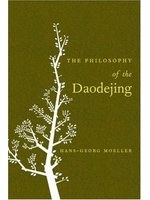

The pseudonymous works Kierkegaard wrote during the period 1843-46 have been responsible for establishing his reputation as an important philosophical thinker, but for Kierkegaard himself, they were merely preparatory for what he saw as the primary task of his authorship: to elucidate the meaning of what it is to live as a Christian and thus to show his readers how they could become truly Christian. The more overtly religious and specifically Christian works Kierkegaard produced in the period 1847-51 were devoted to this task. In this book Sylvia Walsh focuses on the writings of this later period and locates the key to Kierkegaard's understanding of Christianity in the "inverse dialectic" that is involved in "living Christianly." In the book's four main chapters, Walsh examines in detail how this inverse dialectic operates in the complementary relationship of the negative qualifications of Christian existence--sin, the possibility of offense, self-denial, and suffering--to the positive qualifications--faith, forgiveness, new life/love/hope, and joy and consolation. It was Kierkegaard's aim, she argues, "to bring the negative qualifications, which he believed had been virtually eliminated in Christendom, once again into view, to provide them with conceptual clarity, and to show their essential relation to, and necessity in, securing a correct understanding and expression of the positive qualifications of Christian existence."
具體描述
讀後感
評分
評分
評分
評分
用戶評價
相關圖書
本站所有內容均為互聯網搜索引擎提供的公開搜索信息,本站不存儲任何數據與內容,任何內容與數據均與本站無關,如有需要請聯繫相關搜索引擎包括但不限於百度,google,bing,sogou 等
© 2025 book.quotespace.org All Rights Reserved. 小美書屋 版权所有




















